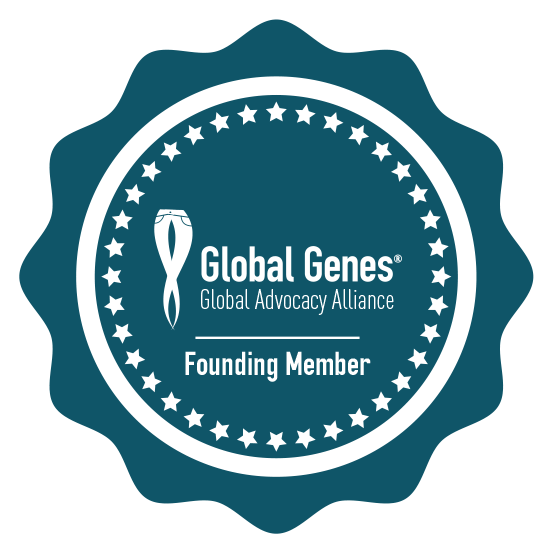Mixed Connective Tissue Disease (MCTD)
When a combination of symptoms of certain multiple autoimmune diseases occurs, it is referred to as a connective tissue disorder or “overlap disease.”
Connective tissues are the fibers that provide the structure that holds bones, ligaments, and muscles together; the substance which connects skin, cartilage, and other tissue in the joints; and the framework that surrounds the heart, lungs, kidneys, and other organs.
Mixed connective tissue disease is classified and considered as an “overlap” of three diseases, Systemic Lupus Erythematosus, Scleroderma, and Polymyositis. Patients with MCTD typically experience features of each of these three diseases. They typically have very high quantities of antinuclear antibodies (ANAs) and antibodies to ribonucleoprotein (anti-RNP) found in their blood. Many patients eventually evolve to become dominated by features of one of the three component illnesses, and in many cases it is Scleroderma.
Symptoms of other disorders such as Raynaud’s, Sjögren’s, and Rheumatoid Arthritis can often be present. The symptoms typically aren’t as severe or as widespread as they would be if the person suffered from any of these individual disorders.
MTCD is considered a rare disorder with an unknown cause, which is referred to as “idiopathic.” Some people have a family history of connective tissue or other related autoimmune diseases, but any genes associated with MCTD have yet to be identified. As with other autoimmune diseases, it is thought that there may be a genetic component which is triggered by an environmental event such as a virus, trauma, drugs, or a myriad of other possible causes.
The signs and symptoms of mixed connective tissue disease vary greatly from one person to another. In many cases, there will be a prominent illness from which patients will experience the most symptoms. For example, if polymyositis is the dominant illness, muscle weakness may be the prominent symptom. If systemic lupus erythematosus prevails, there may be trouble breathing, kidney disease, and/or arthritis of the joints. If scleroderma symptoms dominate, there can be diffuse swelling and thickening of the fingers and feet with bluish discoloration of the fingers after cold exposure called Raynaud’s phenomenon.
Signs & Symptoms of MCTD
Quick Tips about MCTD
- Connective tissues are the framework of the cells of the body.
- Mixed connective tissue disease is an “overlap” combination of connective tissue diseases.
- Diagnosis of mixed connective tissue disease is supported by detecting abnormal antibodies in the blood.
- Treatment of mixed connective tissue disease is directed at suppressing immune-related inflammation of tissues.
Complications of MCTD
Since connective tissues are in all parts of the body, the disease can have many complications, however, the most prevalent, and of utmost concern, is the potential for lung disease. Complications of MCTD can include:
Lung Involvement
An interesting opinion from Dr. Donald Thomas relating to what he feels are the most important things for a MCTD patient to know:
“I think that one of the most important things for the person with MCTD to keep in mind is that there is one major organ system that becomes commonly involved in people who have MCTD, and that is the lungs. Seventy five percent of all MCTD patients will develop lung problems, and this is a major source of their possibly not doing well. It is essential not to smoke cigarettes, to get all vaccines preventing lung infections (the flu shot, Pneumovax, and Prevnar), and to report any symptoms of shortness of breath, cough, and chest pain to their doctor.”
Dr. Donald Thomas,
Author of “The Lupus Encyclopedia”
Diagnosing Mixed Connective Tissue Disease
A rheumatologist, a doctor who specializes in rheumatic and autoimmune diseases, is commonly considered the expert in these disorders and is likely to perform a complete physical examination, keeping an eye out for swollen hands and painful, swollen joints as well as carefully listening and noting other symptoms the patient may be experiencing.
True mixed connective tissue disease is diagnosed when patients demonstrate the clinical features (exam findings) of overlap illnesses and have high amounts of the antibodies ANA and anti-RNP in their blood. Mixed connective tissue disease patients do not typically have antibodies such as dsDNA and Scl70, which are particularly common in systemic lupus erythematosus and scleroderma respectively.
Blood tests can determine whether certain antibodies are present in the blood such as:
Treatment for Mixed Connective Tissue Disease
The treatment of mixed connective tissue disease is typically based on which features are causing signs and symptoms. The prognosis (outlook) varies accordingly. Therapies should be targeted for each of the organ systems affected. In general, treatment is often directed at suppressing the inflammation present in the tissues by using anti-inflammatory and immunosuppressive medications.
Corticosteroids such as Prednisone are commonly used to manage the inflammatory effects of MCTD. Corticosteroids are generally effective but are associated with many risk factors and should be taken with caution and over a limited time period if possible. Immune suppressing drugs are also frequently used to suppress the immune system from attacking the connective tissue.
Mild forms of MCTD can be controlled with nonsteroidal anti-inflammatory drugs, referred to as “NSAIDs,” such as aspirin and acetaminophen. In some patients, the disease can go into remission for many years.
Get Support for MCTD
Since Polymyositis is a part of this disease, if you have been diagnosed, please feel free to join us in our Myositis Support Community to get the support you deserve!
Join TodayWhat is Undifferentiated Connective Tissue Disease (UCTD)?
Cases of UCTD are defined as those in which signs and symptoms are consistent with a connective tissue disease (CTD) but that do not fulfill the classification or diagnostic criteria for any one of the defined CTD’s (ie, RA, SLE, SSc, PM/DM, MCTD, SS)
When these conditions have not developed the classic features of a particular disease, doctors will often refer to the condition as “undifferentiated connective tissue disease” or UCTD. This designation implies that the characteristic features that are used to define the classic connective tissue diseases are not present but that some symptoms or signs of a connective tissue disease exist. For example, a person may have a special antibody in the blood, such as antinuclear antibody, along with muscle pains, but no other definable features of a classic connective tissue disease. Individuals with undifferentiated connective tissue disease may never develop a fully definable condition or they may eventually develop a classic connective tissue disease.
Simply Put
“Simply Put” is a service of Myositis Support and Understanding, to provide overviews of Myositis-related medical and scientific information in understandable language.
MSU volunteers, who have no medical background, read and analyze often-complicated medical information and present it in more simplified terms so that readers have a starting point for further investigation and consultation with healthcare providers. The information provided is not meant to be medical advice of any type.









